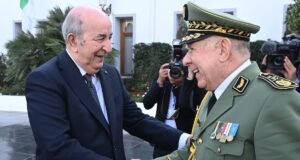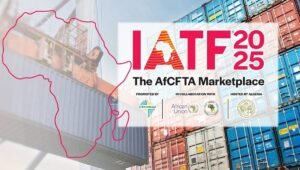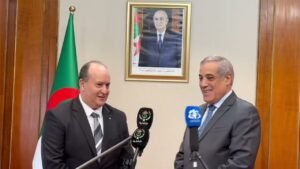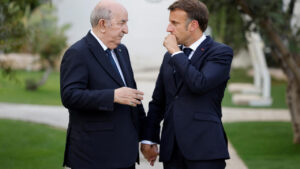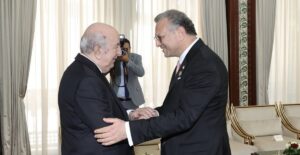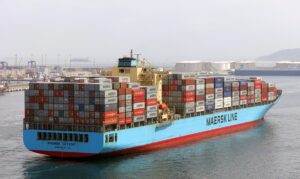With the Algerian regime's prospects closed, are we on the verge of a military coup?
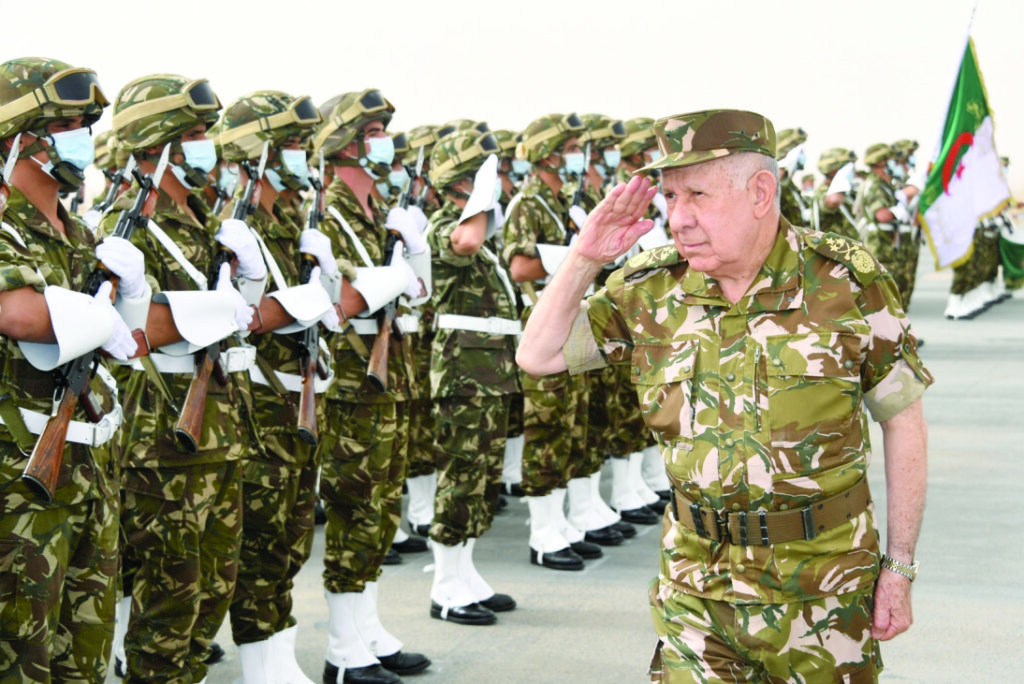
Day after day, observers of Algerian affairs, not to mention Algerians themselves, are increasingly convinced that the crises of the ruling military regime have accumulated, multiplied, and worsened to the point where betting on resolving, or even mitigating, them is no longer realistic! Crises have cut off the path of reversal, and the stubbornness of Algeria's generals, both civilian and military, has exacerbated their consequences and ballooned their costs, to the point where they threaten the very existence of the Algerian state, and even the country's future for generations to come! Some may see this diagnosis as exaggeration, but we will endeavor to shed light on only the most prominent crises, since it is impossible to list them all in the first place, to show that the previous diagnosis does not contain an ounce of bias or exaggeration.
On the political front, experience proves that the mentality governing the selection of officials for senior positions is so deeply ingrained that it is difficult to bet on changing it. Nothing is more indicative of this than a look at the ages of current and former officials to confirm this fact. While the Algerian movement in 2019 was sparked by the insistence of this regime (of which only the head has changed) on renewing the term of a president who every child in Algeria knows cannot even "change his diapers," his replacement was an eighty-year-old president, a similarly aged army commander, and a mid-ninety-year-old legislative head! In a country where the vast majority of the population is not even in their mid-twenties! The seriousness of this crisis is not limited to the calcification of the regime and its lack of renewal, but also to the traits that accompany such advanced age, such as stubbornness, detachment from reality, irritability, and an inability to think clearly about complex, multidimensional issues; in short, the inability to make decisions that would better address the crises facing Algeria, both current and future.
A more serious crisis relates to the military's dominance over all aspects of the state, to the point where we can almost assert that Algeria lacks any civilian service, or one that is managed in a civilian manner. Administration here refers to the entire process, not just the executive aspect, which, although managed by civilian technocrats, is run with a military mentality of "implement and discuss"! Accordingly, the executive authority in Algeria, starting with the presidency, through the government and its ministers, and ending with local authorities (such as governors, for example), has never acquired the virtue of independence from military influence and mentality. Instead, it has always operated within a civilian margin, which narrows or expands depending on the personality of the person sitting in El Mouradia Palace and the nature of their alliances with the General Staff or the intelligence leadership.
The third political crisis concerns the "desertification" of political life in Algeria, whether in its party or civil society aspects. All parties are beholden to their benefactor (usually the intelligence services, and sometimes the General Staff), whether in the majority or the opposition. To the point that any observer of Algerian affairs, we burst into laughter when Abderrazak Makri, and before him his sheikh Mahfoud Nahnah, and his entire movement (Hamas), are presented to us as "oppositionists" belonging to the largest "opposition" party. As for civil society, it lives under laws that restrict freedoms, making its ability to exercise "freedom of breathing" an achievement in itself! Therefore, under this situation, it is impossible to speak of political life in Algeria, neither in its literal nor even metaphorical sense.
The latest crisis, and perhaps the most dangerous, concerns the "pathological" way in which the Algerian regime manages its "hostility" toward Morocco and its territorial integrity! A management that imposes increasing regional and international isolation on it, a steady squandering of funds it desperately needs to address its economic crises, and popular anger that could explode and destroy the entire regime. They see this absurd, ideological hostility inherited by successive Algerian governments since independence, without any of them pausing to answer the Algerians: What real benefit do they derive from this fabricated conflict over Morocco's territorial integrity?!
If we move to the economic aspect, we encounter the same "destruction." To say, in passing, that the Algerian economy follows a "directed socialist" model is a technical term that is not accurate on the ground. It would be more accurate scientifically to deny that it is both directed and socialist. If the Algerian economy had a clear direction, it would not be in such a state of confusion and improvisation. However, if we believe that it is directed by the executive authority headed by Abdelmadjid Tebboune, we would be telling a joke that would bring ridicule to all who listen. This man, who lacks the qualifications to issue a statement or order, or even to comprehend the draft decisions presented to him, lives in a state of perpetual "election campaign" that does not end until the actual campaign for the subsequent presidential elections begins. Six years of his leadership - assuming he is the one in charge - have proven the lies of all his promises, statistics, and figures. He has become addicted to this "virtual reality" that he created through constant lies, to the point where it has become difficult for him to emerge from it and see reality as it really is. As for the character of socialism, it is no less absurd. Neither the gains nor the losses are distributed fairly among Algerians. It would be more accurate to call it a “mafia economy,” characterized by rent and plunder in an unparalleled manner.
An economy that relies on a single resource, oil and gas, and all talk about the possibility of a real Algerian economy outside this circle is pure charlatanism, ignorance, and false propaganda. The existence of a free economy, based on a developed private sector, requires a set of conditions, the simplest of which are absent in Algeria. These include freedom of competition, a developed banking sector (which does not mean technology, as Algerian officials understand it), a trained and experienced workforce, intertwined relations with the international economy, a work environment unrelated to the military and their world, and other conditions that Algeria will need decades of work to achieve, but only after getting rid of its military regime. As for summarizing Algeria's components in the slogan "Whoever asks, come and pay," to indicate the country's lack of external debt, this is a registered "Tebboune" trademark, used to demonstrate the stupid propaganda media that "talks about what it does not know"!!
Of course, dozens of political, economic, social, sporting, cultural, etc. crises could be added to the above. However, the aim of this article is not to make an inventory of the above, but rather to attempt to answer the question: Where is this troubled reality leading Algeria, both rulers and ruled?!
The nature of the current Algerian regime, which centralizes power in the hands of army commander Said Chengriha, and his subsequent encroachment on the presidential wing, occupied by the weakest president in Algeria's history, and the intelligence wing, led by the remnants of the godfather generals "Tawfiq," contributes to limiting the problem and the solution to General Chengriha. This is a situation that is historically unfamiliar in the Algerian regime, where the balance between the three wings, albeit relative, has been a constant in the Algerian system. Because the Algerian regime is by nature "personalized," it has no room for maneuver outside the decisions of these three wings, and political and economic life is absent outside the orbit of these poles. Therefore, the beginning of the move towards confronting the escalating crises in the country cannot occur without a process of re-balancing between these wings and bringing about a radical change in their leadership structure! This requires removing General Chengriha, who dominates the Algerian regime, from the scene and replacing him with a young leader without an ideological background (hostility towards Morocco), either immediately or after a limited transitional period. This would be followed by ending President Tebboune's presence in El Mouradia Palace, because neither the country nor the regime can tolerate his rule and his "acrobatics" for another four years (the next elections are in 2029). Finally, a professional intelligence service would be established, unrelated to politics or General Toufik's legacy, preventing it from becoming a wing in the future and ending the concept of wings that has persisted since independence. What are the chances of bringing about the required changes, and how?
It is certain that the three men at the head of these wings, who, by pure coincidence, are of the exact same age (80 years old), namely President Tebboune, General Chengriha, and General Hassan, would not have undertaken this mission voluntarily, even if they were certain that the entire Algerian regime was collapsing. What remains? Forcing them to do so!! Meaning a military coup, whether "soft" or "hard"! Meaning that an influential general possesses the ability and audacity, with the help of other generals, to quietly remove General Chengriha, promising him not to go to prison for the dozens of crimes he committed during his military service. They would then dismiss President Tebboune on grounds of "unfitness," whether physical or mental, and he would quietly step down if he did not want his shameful files, which are numerous, to be reopened. As for General Hassan, a phone call to him, telling him not to come to the office tomorrow, and promising him not to return to prison, would suffice to accomplish the task. But what should be done if this soft, calm coup, which guarantees everyone's interests, cannot be carried out?! The alternative is a brutal “traditional” coup, carried out by young generals who can accomplish what was previously required, without regard for the feelings of the elders who control the people, and sending the current leaders back to their natural place: prison.
In conclusion, what we are saying may seem difficult to imagine, but given the impossibility of the Algerian regime continuing to govern the country in light of the current crises; and in light of the daily exacerbation of these crises; and if we want to avoid the collapse of the Algerian state as a state, and limit the collapse to the regime only, then the “mafia” of rule, which inherited its mechanisms from its predecessors since independence, has left no other solution but a “military coup”, which we sincerely call for to be carried out at the lowest possible cost, to preserve the existence of the Algerian state, establish a true civilian rule, and achieve what this great people aspire to!
